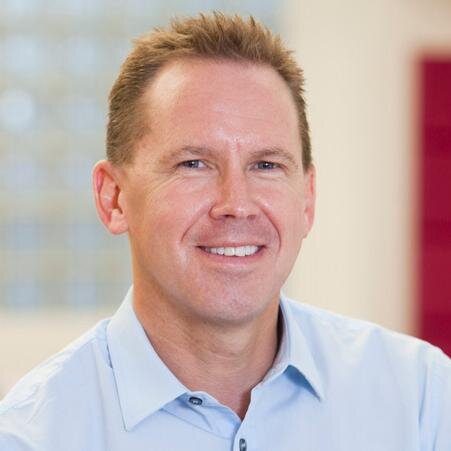MSI Reproductive Choices
Simon Cooke, CEO

Simon Cooke is the Chief Executive Officer of MSI Reproductive Choices. He joined the organisation in 2013 with more than 20 years of international general management, marketing and sales experience in a range of developed and developing regions including Africa, Asia, Latin America, the Nordics, and the Middle East. He held senior leadership positions in the ‘blue chip’ marketing organisations Procter & Gamble and Reckitt Benckiser and was CEO of a Dubai-based private equity-backed company prior to moving sectors.
Simon's vision is to merge best practices from the private sector with successful approaches from the international development sector to ensure that women everywhere, have the right to decide, without question.
MSI Reproductive Choices is a leading global provider of safe abortion and contraception services to some of the world’s poorest communities across 37 countries. In 2018, over 30 million women worldwide were using a method of contraception supplied by MSI. Meanwhile, in the same year, their programmes averted 6.4 million unsafe abortions and 32,046 maternal deaths.
- Tell us briefly why you are passionate about being involved with SheDecides.
She Decides is a powerful response to an ideological attack on a woman’s right to determine her own future, and specifically her right to access safe abortion and contraception services.
The Global Gag rule was designed to do many things, including silencing those who stand for the right of girls and women to make their own choices.
She Decides demonstrates to the world that we won’t be silent. We won’t be complicit, we will stand up for what we believe. She Decides amplifies my belief that every woman and girl should have the ability to determine her own future, and to choose when and if to have children.
- What is the biggest challenge facing women and girls?
Being denied the choice about sex and pregnancy is one of the biggest risks to women and girls today. The evidence is overwhelming that when a woman is not able to make choices for herself – when she is at risk of unintended pregnancy and has no control or say over the size of her family – outcomes in every area of her life are compromised.
In 2018 32.3 million women were using a method of contraception provided by MSI. Fifty percent of the women who use our services said MSI was their only choice. What would have happened if we had not been there? And who is there – who will be there – for the 214 million women who currently want contraception but can’t access it?
- Tell us a story of a moment that drives you to do what you do every day.
The story that stays with me is of Catherine from Zambia. As a school girl with no information about sex, she became pregnant after sleeping with her boyfriend just three times. When he found out, he threatened to beat her if she dared to speak about it, so with no-one else to turn to she approached a woman in her village who gave her a concoction of roots and herbs to drink. Catherine mixed the roots with battery acid and when that didn’t work, she added crushed glass. I have two teenage daughters. I can only imagine what desperation she must have felt to do that - so desperate to end her pregnancy that she risked her life to do so. Catherine survived and I’m proud to say now works with MSI Reproductive Choices in Zambia, sharing her story to protect other young girls from what she went through. Working towards the day when young women like Catherine will never be exposed to the risks of unsafe abortion is what drives me.
- How are we going to get to a future where She Decides, without question?
A future where She Decides without question is a world where she is free choose when and if to have children, so that she’s free to pursue her plans and dreams for herself and her family.
On a basic, every-day, practical level, achieving a world where She Decides requires high-quality, affordable, accessible and acceptable contraception and safe abortion services. It requires focused, sustained advocacy to remove the unnecessary policy and clinical barriers that restrict her access to these services. In short: hard work and long-term commitment. We believe at MSI that no woman who has ever had access to services should ever have to go without access again. This means not just ‘meeting the gap’ of 214 million women who are still waiting for us to show up, but also continuing our current commitments to those who already have access.
The world is changing, there is reason for optimism, but we still have unfinished business.
We have to complete the medical abortion revolution, define minimum standards for safety, and ensure quality product and appropriate support structures so no woman is alone in the choices she makes. Task sharing of contraception and abortion services to other cadres of health workers is critical if we are to really scale up access.
We have to continue the work at the community level, working with those community leaders and gate keepers to reduce stigma, increase knowledge and increase access.
Sexual and reproductive health services are often over-medicalised, and in low-resource settings this is creating inefficiencies, whilst women are dying. We must commit to finding ways to be there for girls and women, now and in the future, and we must not ever be complacent. Not if we really believe in a world where She Decides.

